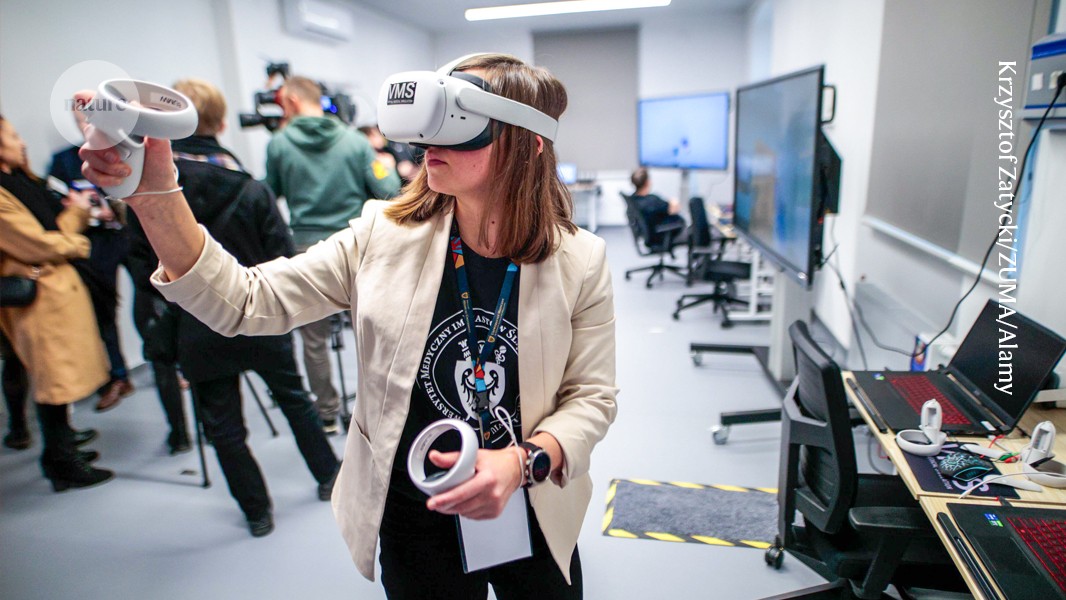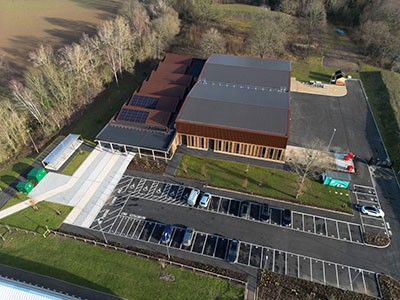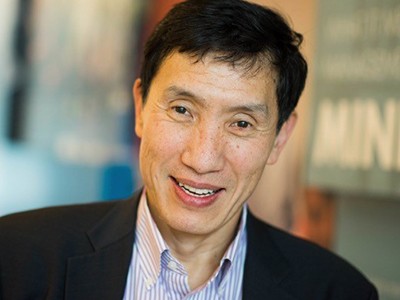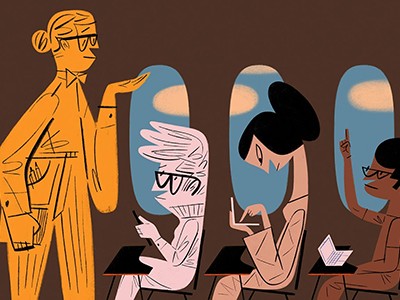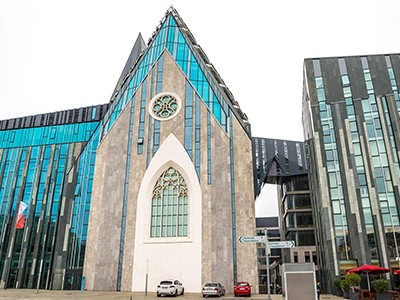The world needs skilled students and researchers more than ever to address urgent global issues, ranging from climate change to public health crises. Simultaneously, universities are grappling with significant challenges, such as the financial strain of increased access to higher education (also known as massification) and the rapid evolution of technology coupled with new political influences on academic freedom. Higher education institutions must remain accessible, integral parts of their communities. Here, six scholars discuss their efforts to enhance different facets of their universities.
The future of universities
Recently, one significant disruption in research and education is the rise of generative artificial intelligence (AI). It remains uncertain how tools like ChatGPT will transform learning and assessment for students. As educators navigate whether to restrict or embrace these changing technologies, AI researcher Ya-Qin Zhang from Tsinghua University in Beijing is examining how AI can expedite lengthy educational processes, particularly in medical training.
Another pressing challenge is the need for universities to commercialize discoveries made in their labs. Academics often lack the training to navigate the complicated landscape of intellectual property and regulations, as well as find potential investors. Engineering researcher Ramesh Jagannathan aims to bridge this gap at New York University Abu Dhabi by creating a platform that supports start-up firms.
Moreover, universities are being called upon to offer a wide array of skills to equip students for diverse workplaces. PhD candidates need confidence that their qualifications hold value beyond academia. This is a pressing concern in Brazil, according to Denise Pires de Carvalho, who leads an initiative aimed at enhancing the employability of PhD graduates.
Universities are — and must continue to be — a force for good
Creative thinking is increasingly recognized as an essential skill in both workplaces and universities. However, traditional science curricula often fall short in fostering this type of innovation. Physicist Lorna Dougan from the University of Leeds shares her approach to help physics undergrads engage with current research through outreach projects to spark their creativity.
Beyond career preparation, universities should foster environments that support student well-being. At the SRM Institute of Science and Technology near Chennai, India, public health researcher Bala Ganesh Pichamuthu is leading efforts focused on students’ mental health.
To strengthen connections with students and their communities, universities need to be culturally rooted. In regions where institutions were established during colonial times, the imported teaching philosophies often marginalized local values. Disability and gender researcher Sibonokuhle Ndlovu at the University of Johannesburg investigates how decolonizing education could create more equitable opportunities for disadvantaged communities, such as women with disabilities.
YA-QIN ZHANG: Use AI to help speed up education
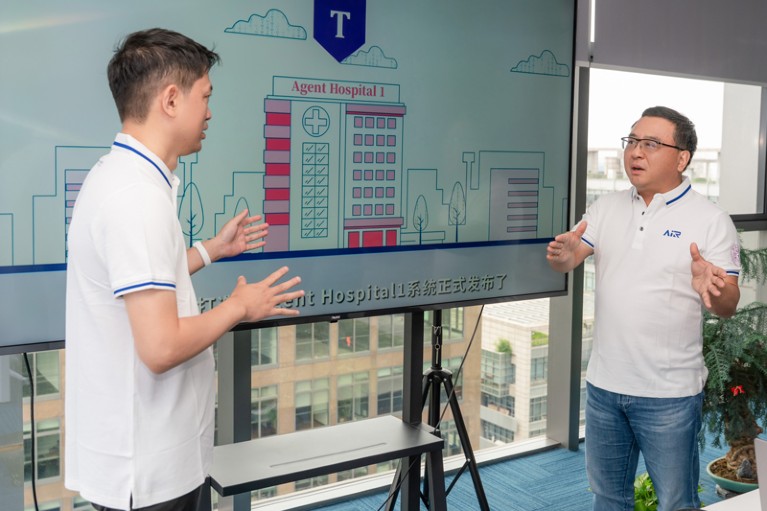
Ya-Qin Zhang (right) discusses Agent Hospital, an AI tool developed in their lab.
Credit: Tsinghua University
PhD graduates and medical professionals typically spend 6 to 15 years in higher education, making it challenging for universities to adapt their training to meet evolving job demands. At Tsinghua University’s Institute for AI Industry Research, we are leveraging AI to expedite the educational journey.
Focusing on medical training, particularly during residency—the postgraduate equivalent—we developed a digital platform called Agent Hospital (J. Li et al. Preprint at arXiv https://doi.org/p5kh; 2024). This simulation mirrors real-world medical treatments from disease onset to follow-up visits. AI agents act as both doctors and patients, powered by advanced models that process text, images, and even simulate movements.
Universities under fire must harness more of the financial value they create
These AI doctors learn from millions of cases, matching human practitioners’ diagnoses with 96% accuracy when tested against questions from the US Medical Licensing Examination. We have begun testing Agent Hospital at Tsinghua University to train human physicians. The AI patients communicate their symptoms through text, voice, and simulated movements. We’re also exploring how to mimic tactile sensations with wearable devices.
While AI cannot replace real patient interactions, using these tools early in the training process can accelerate students’ skill development in a safe environment. These simulations have potential applications beyond medicine, addressing various administrative tasks and literature reviews. The scientific community must ensure these tools are developed ethically, while preserving human judgment.
RAMESH JAGANNATHAN: Strengthen links with local investors
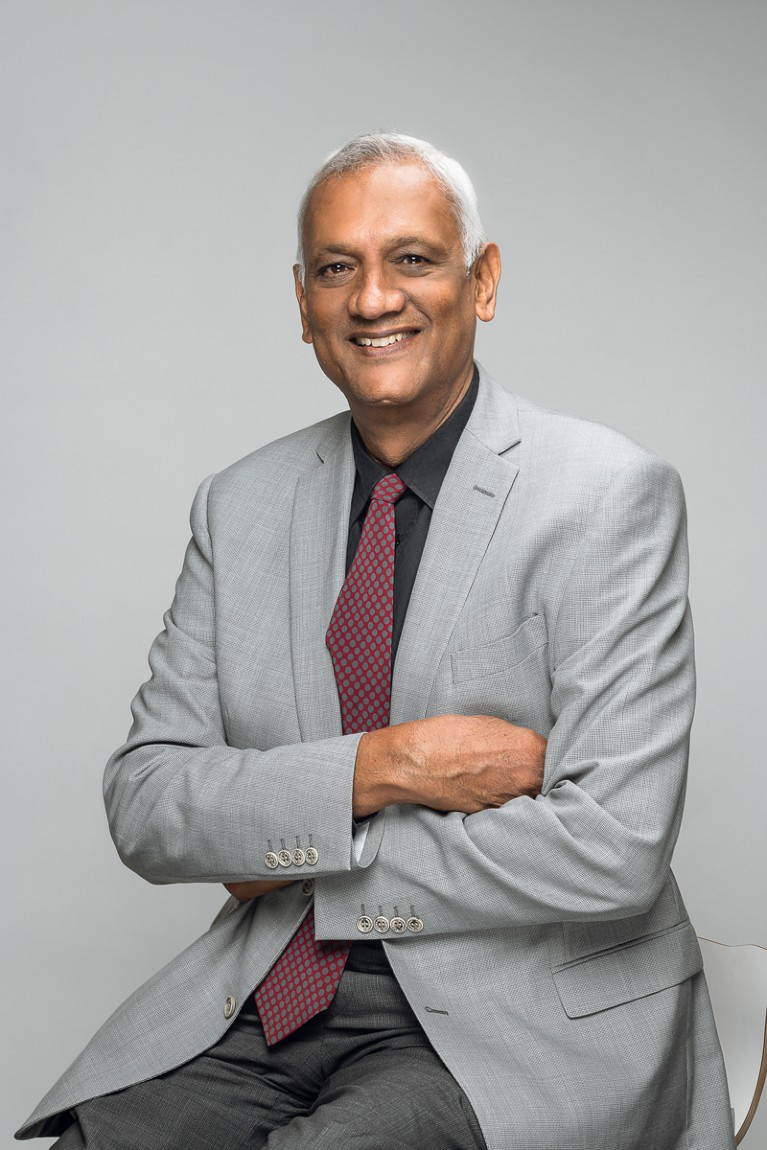
Ramesh Jagannathan co-founded the platform startAD to boost commercialization of research at New York University Abu Dhabi.
Credit: startAD
Universities play a critical role in driving innovation, yet many lack clear pathways for transitioning research into marketable products. Having transitioned back to academia after 30 years in the photographic industry, I’ve witnessed the barriers of navigating this complex process. Proximity to various stakeholders—government, entrepreneurs, corporations, investors, and the public—is essential for fostering innovation.
When I joined New York University (NYU) Abu Dhabi in 2009, the UAE was embarking on a transition from a fossil-fuel-based economy to one focused on knowledge and innovation. To facilitate this change, in 2016, I co-founded startAD, aiming to bridge the gap between research and commercialization.
The great university shake-up: four charts show how global higher education is changing
Each year, startAD offers diverse educational programs, including startup accelerators and workshops on digital and AI tools, funded by corporate and government sponsors. These initiatives demystify the entrepreneurial journey, connecting researchers with potential investors and helping them identify customer needs and market opportunities.
Several startAD programs directly focus on translating research into products. A prime example is Chatsign, an AI-powered real-time sign language translation system developed by university faculty. Additionally, the Conscious Investor Fellowship program trains participants to invest in climate initiatives aligned with regional goals.
DENISE PIRES DE CARVALHO: Boost the employability of PhD holders
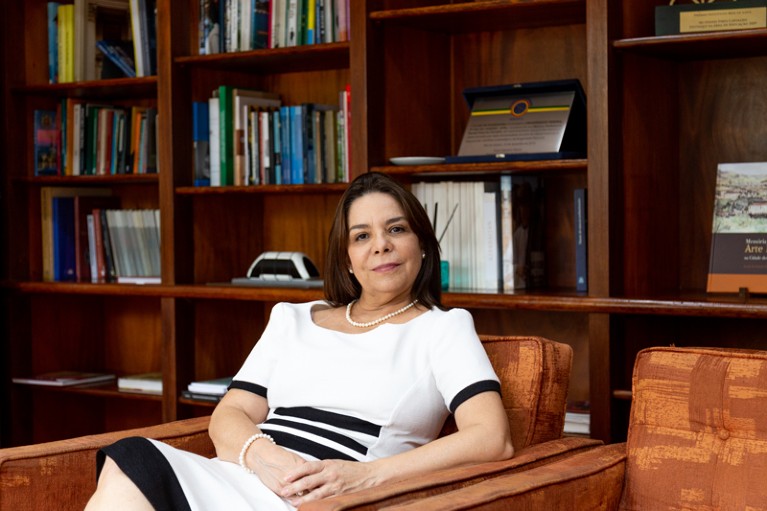
Denise Pires de Carvalho is working to shorten the time students spend earning a PhD in Brazil.
Credit: Moisés Pimentel, UFRJ
In many regions, PhD programs primarily prepare students for academic careers, leaving limited opportunities in industry. This trend is especially pronounced in Brazil, where only 12.5% of PhD holders found jobs in industry in 2021, compared to 43% in the United States. As a result, enrollment in master’s and PhD programs has declined, particularly in engineering, which saw a significant 36% drop from 2017 to 2022.
In collaboration with colleagues at the Brazilian Federal Agency for Support and Evaluation of Graduate Education (CAPES), I am working to reform the university system to enhance the employability of graduates.
How universities came to be — and why they are in trouble now
A priority is to reduce the time it takes for students to earn PhDs. Many Brazilian undergraduates participate in programs that offer early research exposure, which could potentially count towards their doctoral degrees. This would speed up the PhD timeline and allow graduates to enter the job market sooner, easing concerns about delayed contributions to social security or pension systems. CAPES is also promoting the modernization of programs to help transition master’s students into PhD tracks more smoothly.
It’s essential to create stronger partnerships between universities and industries. Government investments in programs enabling students to gain industrial experience during their studies will be vital. Universities must also update curricula to align better with industry needs. Building these connections is crucial for meeting societal demands in vital areas such as energy and AI.
LORNA DOUGAN: Nurture creativity in science
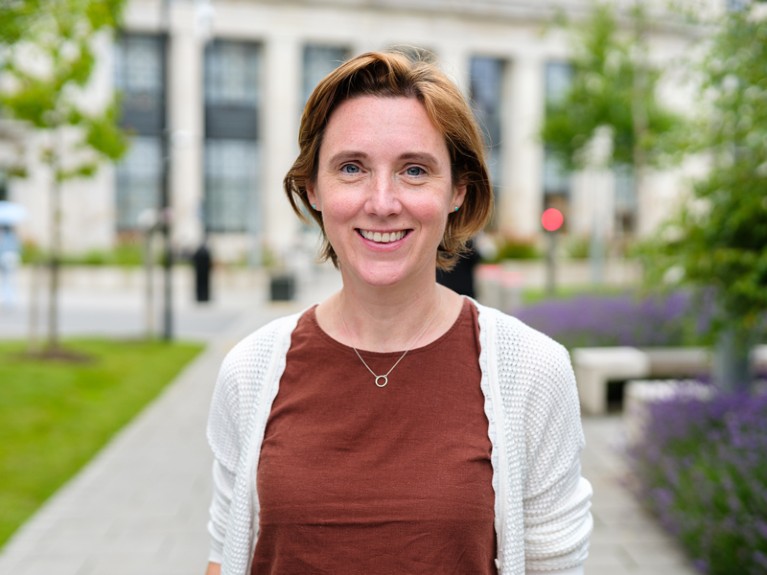
Lorna Dougan’s physics undergraduates collaborate on creative projects in their degree.
Credit: University of Leeds
Creativity is vital in the workplace, aiding innovation and complex problem-solving. Some educational systems have sought to integrate arts with science, technology, engineering, and mathematics (STEAM). Yet, in many universities, the arts and sciences remain segregated, reinforcing the stereotype that students must choose to be either ‘creative’ or ‘scientific.’
Summary: The urgency for skilled students and researchers has intensified globally, driven by pressing issues like climate change and public health emergencies. While universities face challenges like increasing access costs and adapting to technological changes, a diverse group of scholars are innovating their universities’ approaches to education, employability, and community engagement. From utilizing AI in medical training to enhancing the marketability of research findings and nurturing creativity, these efforts aim to create well-rounded, capable individuals ready to meet societal needs.
